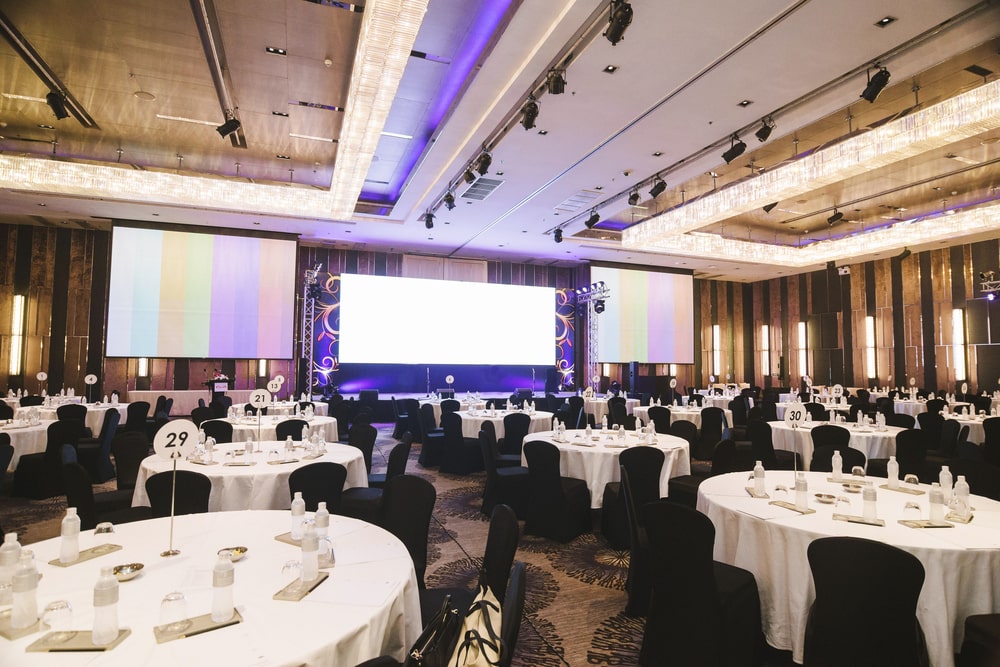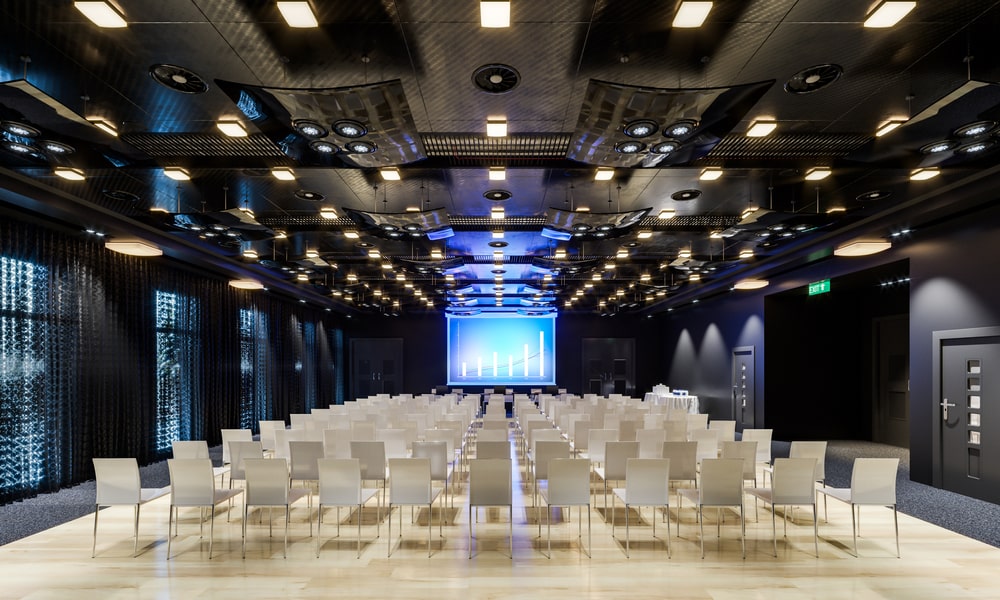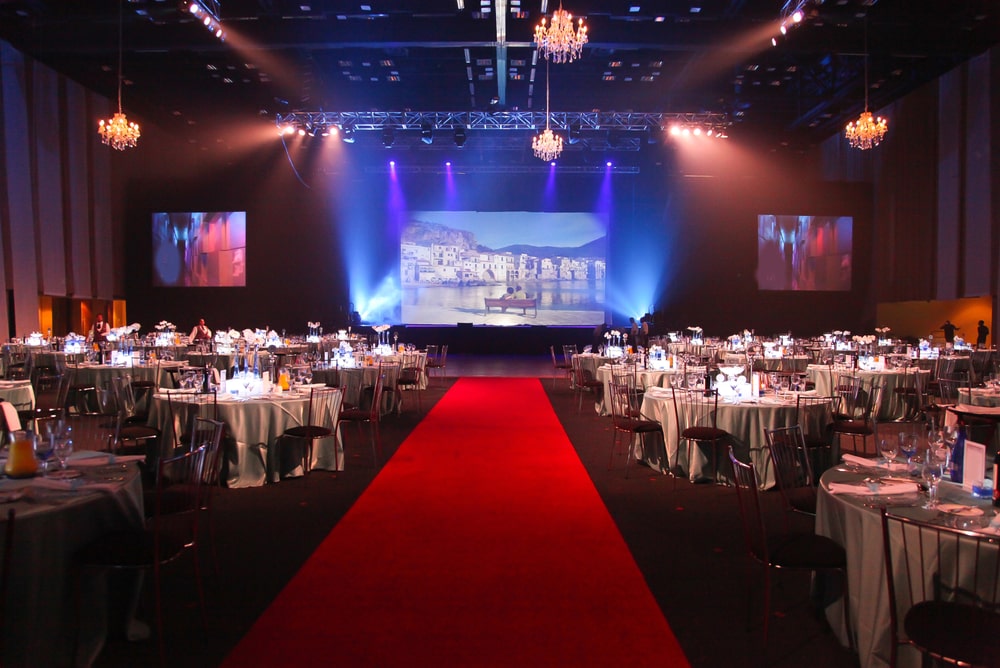So, you’ve decided to host a corporate event to boost company morale, network with potential clients, or celebrate a milestone. But before you can begin planning the specifics of your event, you must first choose the perfect venue and location.
Many considerations go into making this decision, but with the right approach and research, you can find a venue that aligns with your event’s needs and goals.
This post will walk you through the various factors to consider when choosing a corporate event venue and location.
Location Options For Your Corporate Event
First things first, consider the location you want to host your event.
“Do you want to stay local, or are you open to hosting the event in a different city or country? These three options all have their advantages and disadvantages.”
Hosting a local event may be more convenient for your attendees, as they won’t have to travel far. Additionally, hosting in your city gives you a better understanding of the area and potential venues. However, staying local limits the possible venues you can choose from.
Instead, you can opt for a road trip and host your event in a different city. It can be the next town over or across the state, or even a plane ride away. This option opens up a whole new range of venues and can also add a sense of excitement for your attendees.
However, hosting in a different city may require more planning and logistical work. You will also need to spend extra money for travel and accommodations.
Finally, hosting in a different country can be a unique and memorable experience for your attendees. Typically reserved for smaller, more intimate events, hosting internationally allows you to tap into a new market and network with international clients. However, it also calls for extensive planning and significantly higher costs for travel and accommodations.
What Factors Should You Consider When Choosing A Venue For Your Corporate Event?
International events are a whole different ball game, but for local and out-of-town events, there are several important factors to consider in your venue search.
Evaluating them before committing to a venue can save you from any last-minute mishaps or disappointments. When looking for a venue for your corporate event, consider the following:
Size And Accommodation

Hopefully, you have a rough estimate of the number of attendees you’re expecting at your event. If not, it might be time to start gathering that information.
The size of your expected attendance plays a significant role in choosing the appropriate venue for your event. Will the space be too cramped with too many people, or will it feel empty with too few attendees?
In addition to considering the size, consider what kind of accommodations the venue offers.
Having 500 seats means nothing if there aren’t enough tables, accessories, etc. for your attendees.
“Make sure that the venue can comfortably accommodate the number of guests you’re expecting and any rentals or setup you may need for your event.”
Parking Situation
“In most cases, each attendee will reach the event separately. Of course, you should encourage carpooling or public transportation, but it’s also essential to consider the parking situation at the venue.”
Is there a large enough lot for all attendees? Are there any additional parking fees? Are there alternative transportation options available for those who don’t drive? If parking is limited or not easily accessible at the venue, it may be worth finding a different location or renting a shuttle for your attendees.
You want to maintain their experience before they even enter the event.
Technical Setup

Chances are, your corporate event will require some sort of technical setup for presentations, displays, and more. Before committing to a venue, ensure they have all the necessary equipment available. It’s also important to inquire about additional fees for using their technology or bringing in outside equipment.
In addition to audiovisual equipment, note the venue’s WiFi situation. In this day and age, having reliable WiFi at an event is almost a necessity. Make sure the venue can handle the number of devices you expect to be connected to at one time, and inquire about any additional fees for WiFi usage. Charging stations and power outlets are also a plus if your event will last several hours.
Some venues can accommodate creating a unique WiFi network and password solely for your event. Inquire with your venue if this is something they can accommodate.
Food & Beverages
“No event is complete without food and beverages. Hungry people generally find it harder to have a good time, so your venue should offer options for feeding your attendees.”
Inquire about any in-house catering services and menu options. You may also want to ask about dietary restrictions or special requests that can be accommodated.
In addition to the meal itself, also consider the type of service that the venue offers. There’s an ambiance difference between buffet-style and sit-down meal service, so think about which option is more appropriate for your event.
The dress code might also play a role in the meal service and any cultural norms that need to be considered.

And remember drinks! Venues need a permit to serve alcohol, so make sure the venue you choose is available if you plan to serve drinks at your event. They might even have a full bar, which could save you the trouble of bringing in outside beverages.
Remember too, to have a fully stocked and always open drink station for your attendees during the presentation sessions or “down time.” Consider coffee, tea, water, juices and soft drinks.
Extras And Amenities
Beyond the basics of size, parking, technology setup, and food & beverage options, a good event venue will also have extra amenities to make the experience even more enjoyable for your attendees.
“Things like a coat check or on-site restrooms can be major conveniences for your guests.”
Depending on the nature of your event, some other amenities to consider might be a stage or performance space, breakout rooms, and even outdoor space. It’s also worth thinking about any special features that could make the venue more memorable for your attendees, such as a beautiful view.
Uniqueness
Speaking of a beautiful view and special features, finding a venue with some degree of uniqueness is always a plus. You can consider everything from unique architectural features to interactive exhibits or even the location’s historical significance.
“We’ve all seen the traditional ballroom or conference room setting for corporate events, so try to mix it up and find a venue that stands out.”
At the end of the day, your event venue sets the tone for the entire experience. Unveiling a unique and exciting venue will excite your attendees and leave a lasting impression.
Another way to add to the experience is by renting out special furniture or decor from companies like Curated Events. We can take your event to the next level and make it one-of-a-kind.
Brand Image

It’s important to consider how the venue aligns with your brand image and message. Does the venue’s atmosphere fit with your event’s theme or tone? Will it make attendees associate positive feelings with your brand?
“For example, if you’re hosting an event for a sustainability-focused company, you may want to prioritize a green venue or one with environmentally friendly features. On the other hand, if you’re throwing a gala for a luxury brand, an upscale and elegant venue might be more appropriate.”
Acoustics
Don’t forget about the acoustics of the venue. In simple terms, acoustics refers to how sound travels in space. A poorly designed venue with bad acoustics won’t allow sound to carry well, leading to a muffled and frustrating experience for your attendees.
Most corporate events involve some sort of presentation or speech. The acoustics can make or break a speaker’s ability to be heard and understood. Ask about any sound equipment available at the venue and do a test run before committing to the space.
Logistics
Finally, it’s essential to consider the logistics of the venue. Logistics is a broad term, but it includes crucial factors.
“Accessibility within the venue is critical, such as accessible entrances for those with mobility issues and clearly marked signage for finding different rooms or areas.”
You’ll also want to consider the venue’s proximity to hotels, public transportation, and any other locations your attendees might need to access during the event. And don’t forget about the logistics for you as the event planner. Are load-in and setup easy? Is there a dedicated event coordinator on-site to assist with any issues that may arise?
How To Choose Between Corporate Event Venues?
If more than one venue checks all of your boxes, it can be challenging to make a final decision. In this case, it’s helpful to consider the intangibles—the little extras and special features that set one venue apart from another.
Your gut feeling about a space can also be valuable; trust your instincts and choose the option that excites you the most.
Check Availability
Naturally, you’ll want to confirm availability for your desired date before making a final decision. It’s important to note that popular venues may book up far in advance, so start your search early and have backup dates in mind, just in case.
“You might realize that one of your top choices is unavailable, but that just means it’s time to fall in love with another option.”
Read Reviews
“It can be hard to gauge the quality of a venue just from its website and pictures. Even a single in-person visit won’t give you a complete picture of the event experience at a particular location.”
One helpful tool is reading online reviews from previous clients or attendees, as they can give an honest and comprehensive account of their experiences.
Look for consistent patterns, such as a venue consistently receiving praise for its excellent customer service or consistently receiving complaints about poor acoustics. If you know of other event professionals or colleagues who have hosted events at the venue, ask for their testimonials as well.
Evaluate Costs
Cost is always a consideration when choosing a venue. It’s important to have a clear budget in mind and compare the pricing of different venues. Note that cost can also refer to more than just rental fees.
Consider any additional costs, such as a corkage fee for bringing in outside alcohol or a charge for using the venue’s AV equipment.
In the unfortunate scenario where you must cancel or reschedule your event, it’s also important to be aware of the venue’s cancellation policy and associated fees. On top of that, remember to factor in any necessary rentals, such as furniture, decor, or audiovisual equipment.
Analyze The Contract
Once you’ve chosen a venue and are ready to book, carefully review the contract before signing. Understanding all the terms and conditions is crucial, including any hidden fees or restrictions on decor or catering. The venue might limit the vendors you can use or require that all service staff be from their approved list.
The contract should also outline the expectations for event set up and clean up, as well as who is responsible for supplying certain equipment or amenities. Pay close attention to insurance requirements.
What happens if one of your guests gets rowdy and breaks a valuable piece of the venue’s property? Make sure you’re fully covered in any potential mishaps.
Remember The Purpose Of Your Event
While there are many factors to consider in choosing the perfect corporate event venue, it’s important to remember the reason for the event itself. Is it a conference where attendees will sit and take notes for most of the day?
In that case, comfortable seating and reliable internet access might be top priorities.
If it’s a networking mixer, the atmosphere and layout may be more important. Ensure enough walking and mingling space. There should also be areas geared toward conversation and socialization.
Match The Season
“Finally, the season and theme of your event can also play a role in choosing the perfect venue.”
For example, an outdoor space with lush greenery would be a beautiful setting for a spring or summer event, while an elegant ballroom would be better suited for a winter gala.
Additionally, consider how the venue’s atmosphere and design align with the theme of your event. For instance, a modern art museum might be a unique and fitting option for an event centered around creativity and innovation. Add a few decorative touches to enhance the theme and tie everything together for a successful and memorable event.
Contact us at Curated Events for assistance in planning and renting any necessary furniture or equipment to make your corporate event a success.

